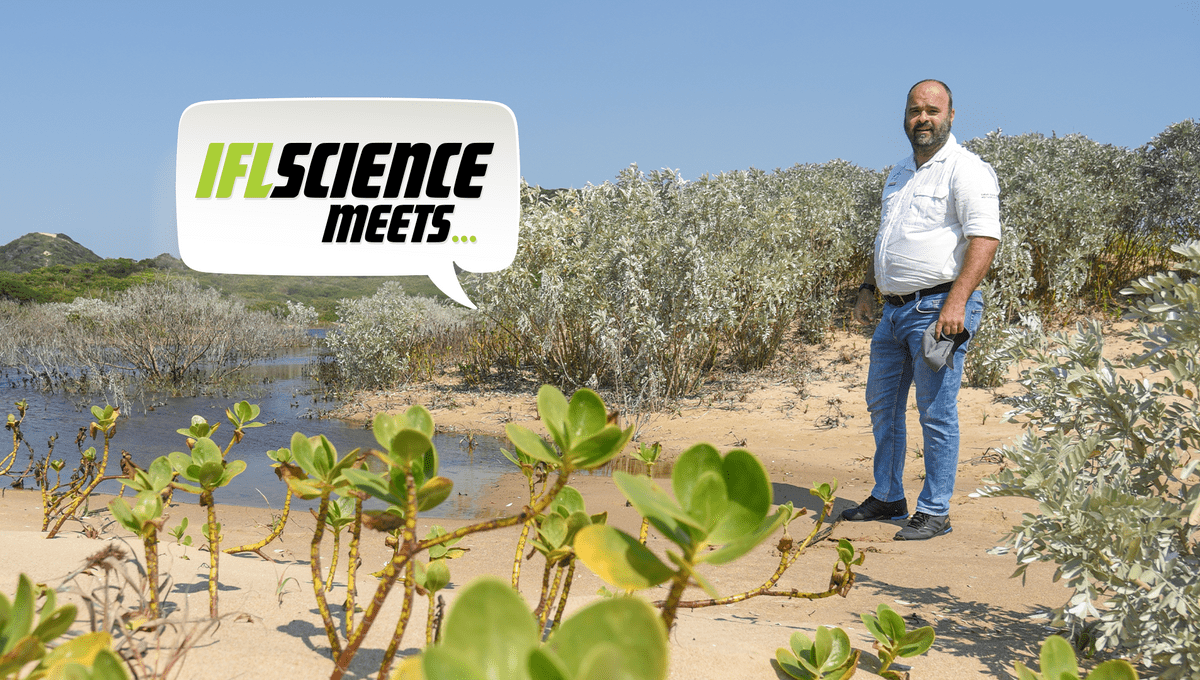
The Tusk Conservation Awards for 2022 are taking place this November, marking their 10th year, and Miguel Gonçalves – a park warden for the National Administration for Conservation Areas, Mozambique – is one of the named nominees. Working at the Maputo National Park since 1999, Goncalves’s efforts over the past 12 years have seen areas of the park which were once rife with hunting transformed into safe spaces for terrestrial and marine life to thrive.
“I believe in the work that I do passionately,” said Gonçalves, finalist for the Tusk Award for Conservation in Africa, in a release. “I can see the difference the team has made over the last 12 years and the impact we have had on the surrounding communities, who are our foremost partners in the landscape.”
We caught up with Gonçalves to find out more about his conservation work and how it feels to be a nominee for the Tusk Conservation Awards 2022.
How does it feel to be selected as a nominee?
First of all, as you can imagine, it was a huge surprise. When I first got the email, I thought they’d got the wrong email address! It wasn’t expected. I’m very honored, but above all proud for having the work we’ve done at Maputo National Park over the years, the people who are currently here, the people who’ve supported us in the past, and our partners that have made the transformation of the park possible, recognized.
What is the most important thing you’ve learned from your work in conservation?
The huge need to balance the need to protect and conserve the park, the environment, and the wildlife with people around us. Especially the surrounding communities that are heavily reliant on our natural resources. We are pushing every day to achieve that balance.
What advice would you give to someone with a goal of working in a similar field?
I will say it’s more than a job, it’s a mission. That comes with some sacrifices, mainly on the family side of things, but it’s worth it. I think the legacy that we leave for the next generation is huge. But it’s also important to understand that the job is not about only one thing (e.g just monitoring or research). It’s much more than that.
What changes do you hope to see in the conservation and management of wild animals in the future?
Mainly I would say more involvement and leadership from local communities – we’re working towards that. We recently saw the start of the creation of a new community conservancy on the boundary of the national park. If we can have the communities being part of conservation and assuming a leading role, then we’re on the right track.
Any particularly proud moments from life in the field?
When I joined, the marine component of the Maputo National park was then the Ouro Partial Marine Reserve. I’m proud of it becoming part of the national park.
I’m very proud of the team and training the team on the ground. They’re from all different backgrounds – journalists, divers, military – I’ve been able to turn them into rangers and conservationists. Together we’ve gotten the park infrastructure together, started the monitoring programmes, signed up partners. There’s lots more, but it’s probably what I’m most proud of.
The winner of the Tusk Award for Conservation in African will be announced during a ceremony at Hampton Court Palace on November 1, along with the recipient of the Prince William Award for Conservation and the Tusk Wildlife Ranger Award.
Source Link: IFLScience Meets: Tusk Award For Conservation In Africa Nominee Miguel Gonçalves